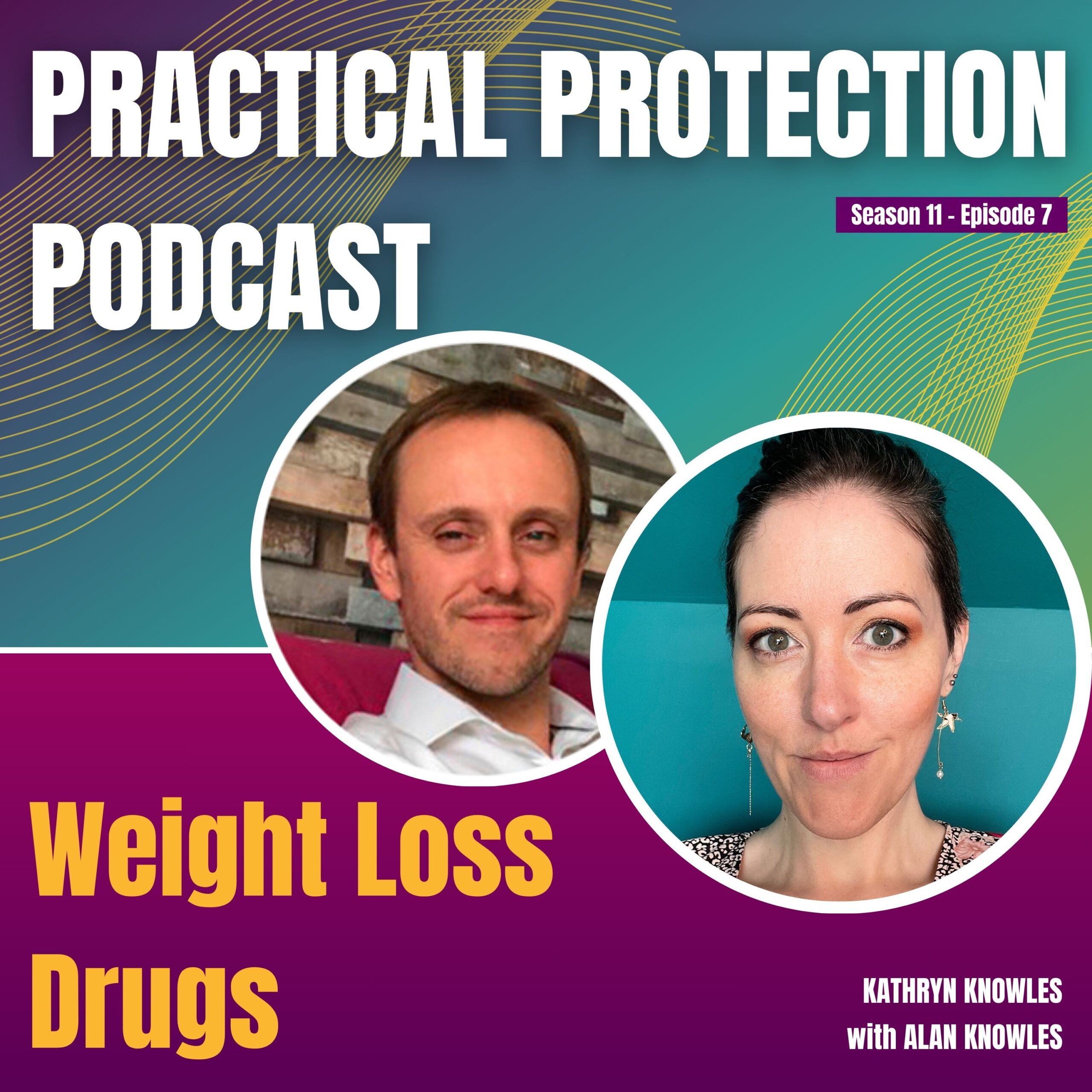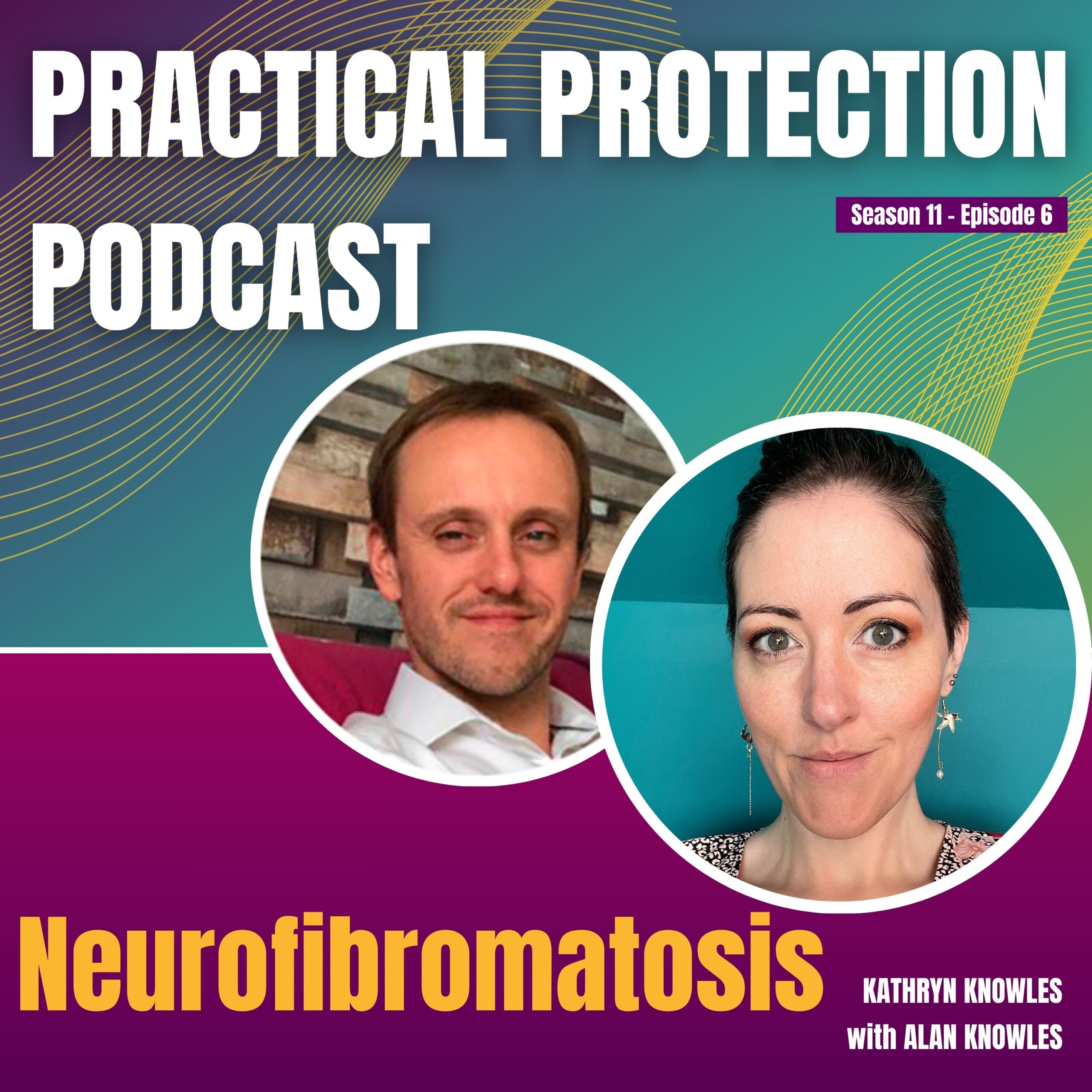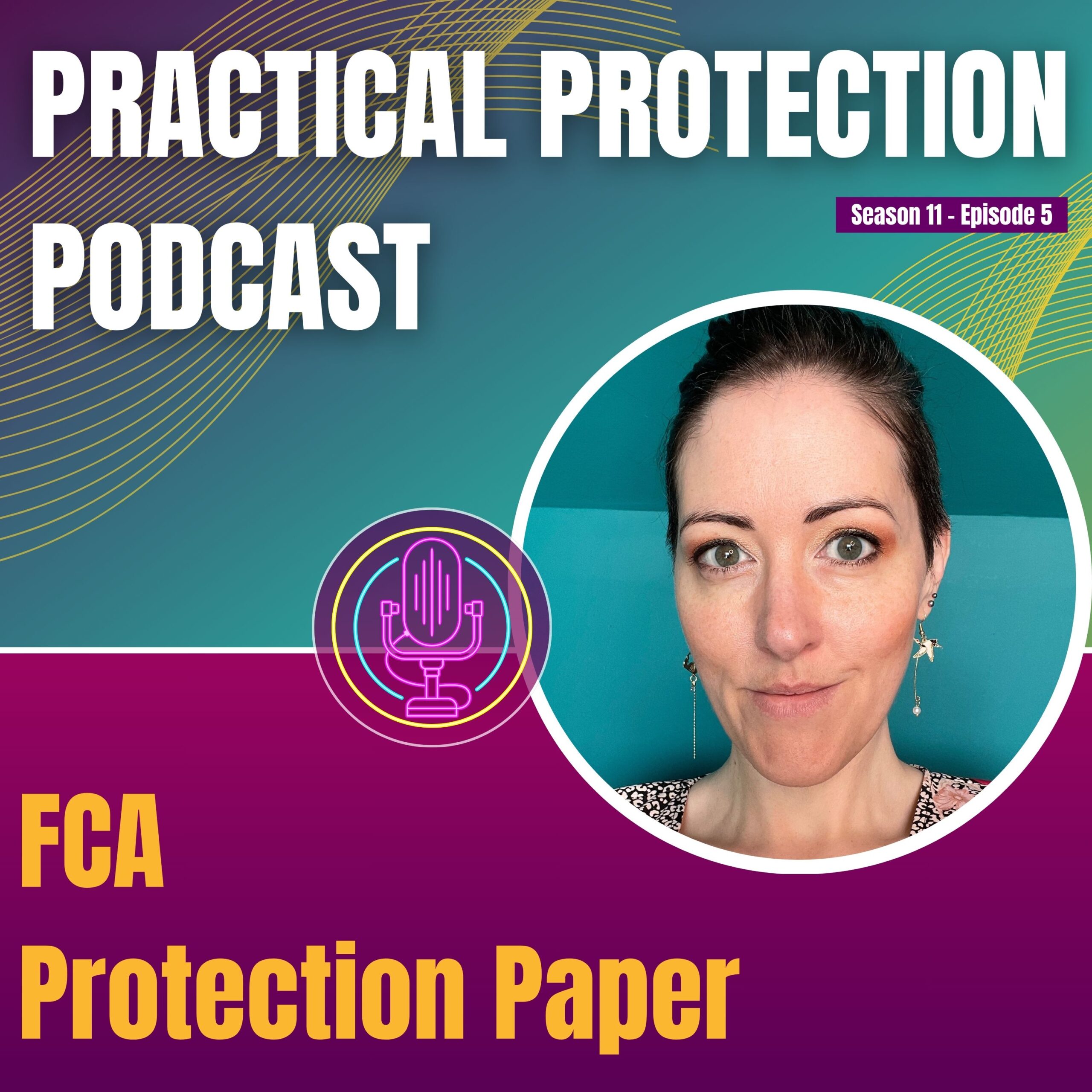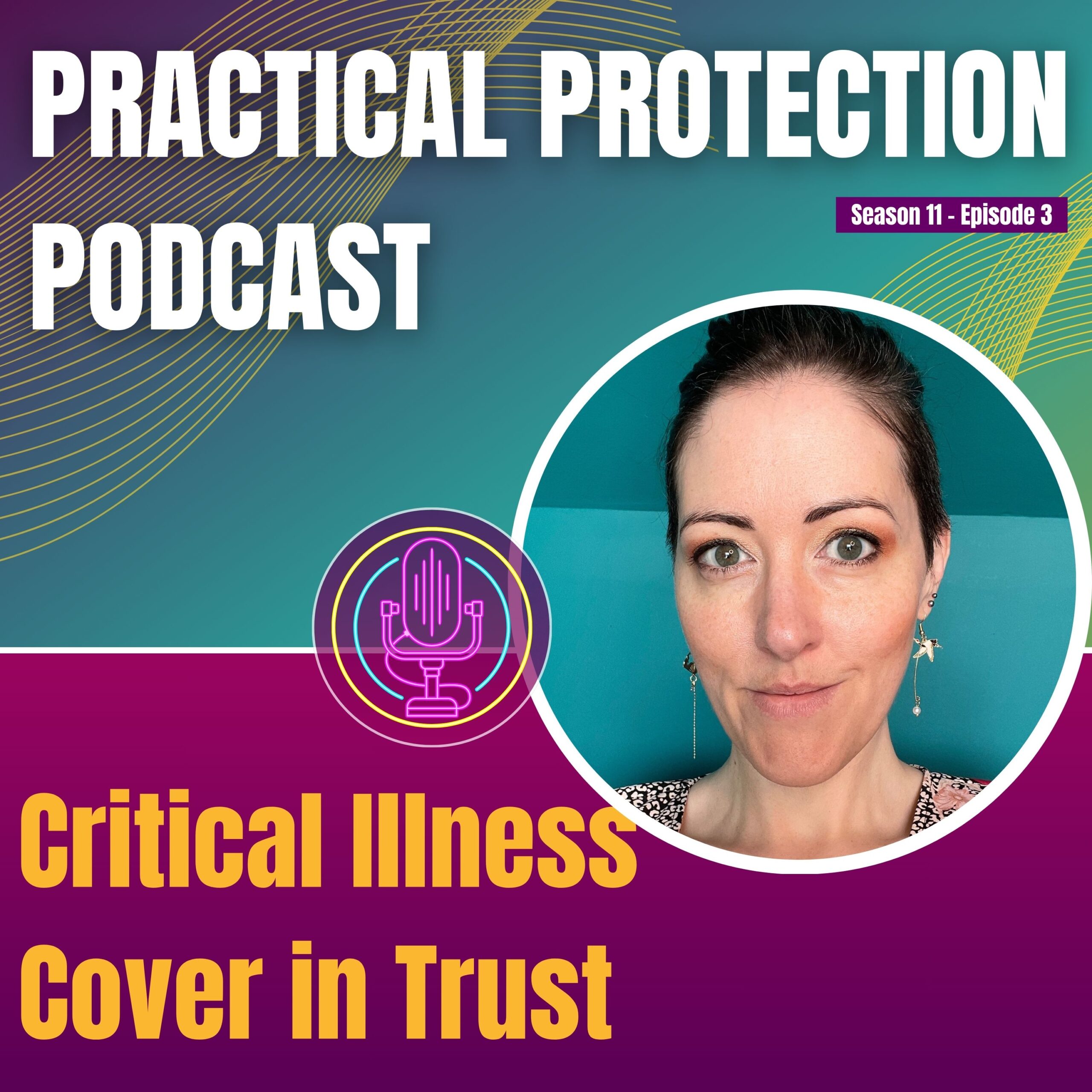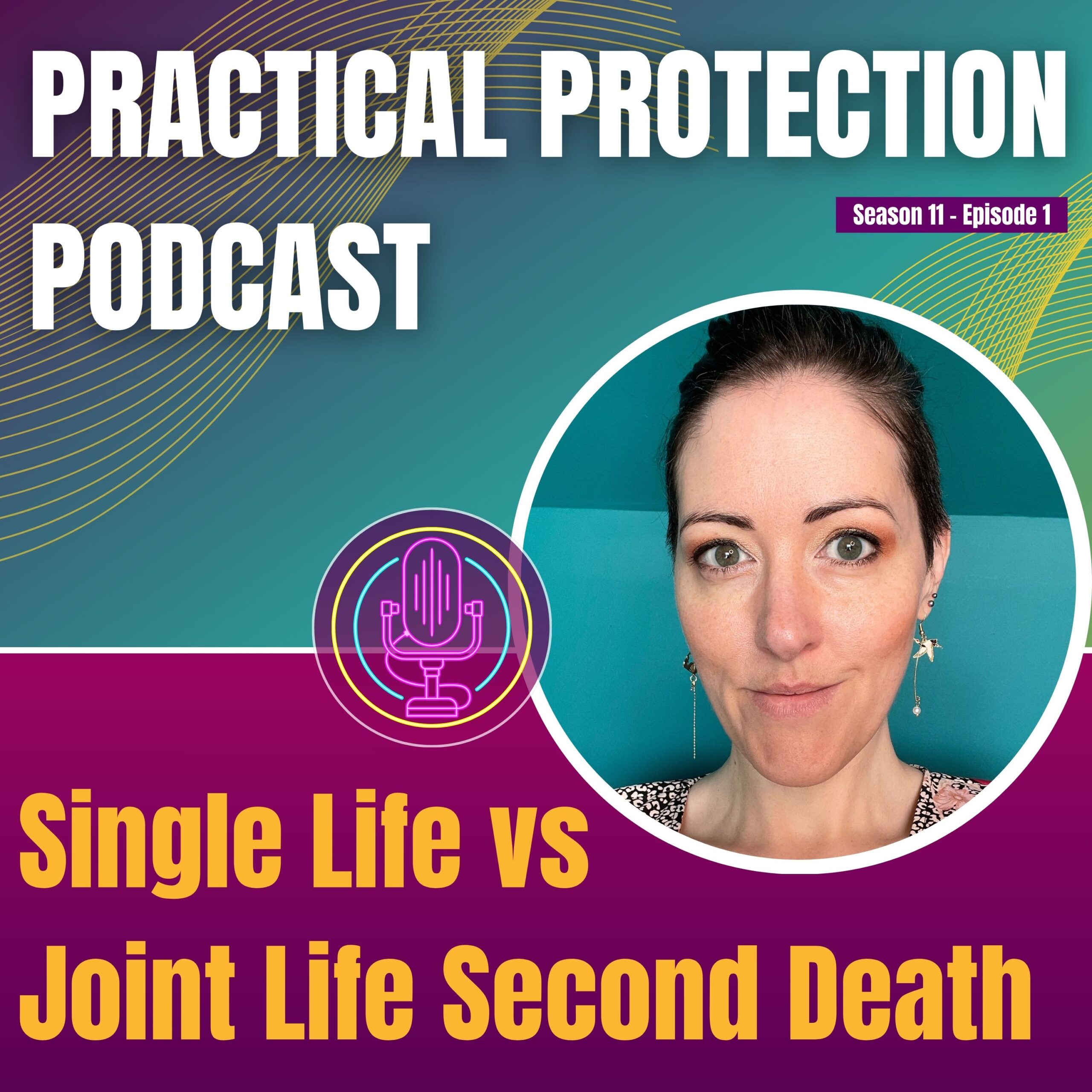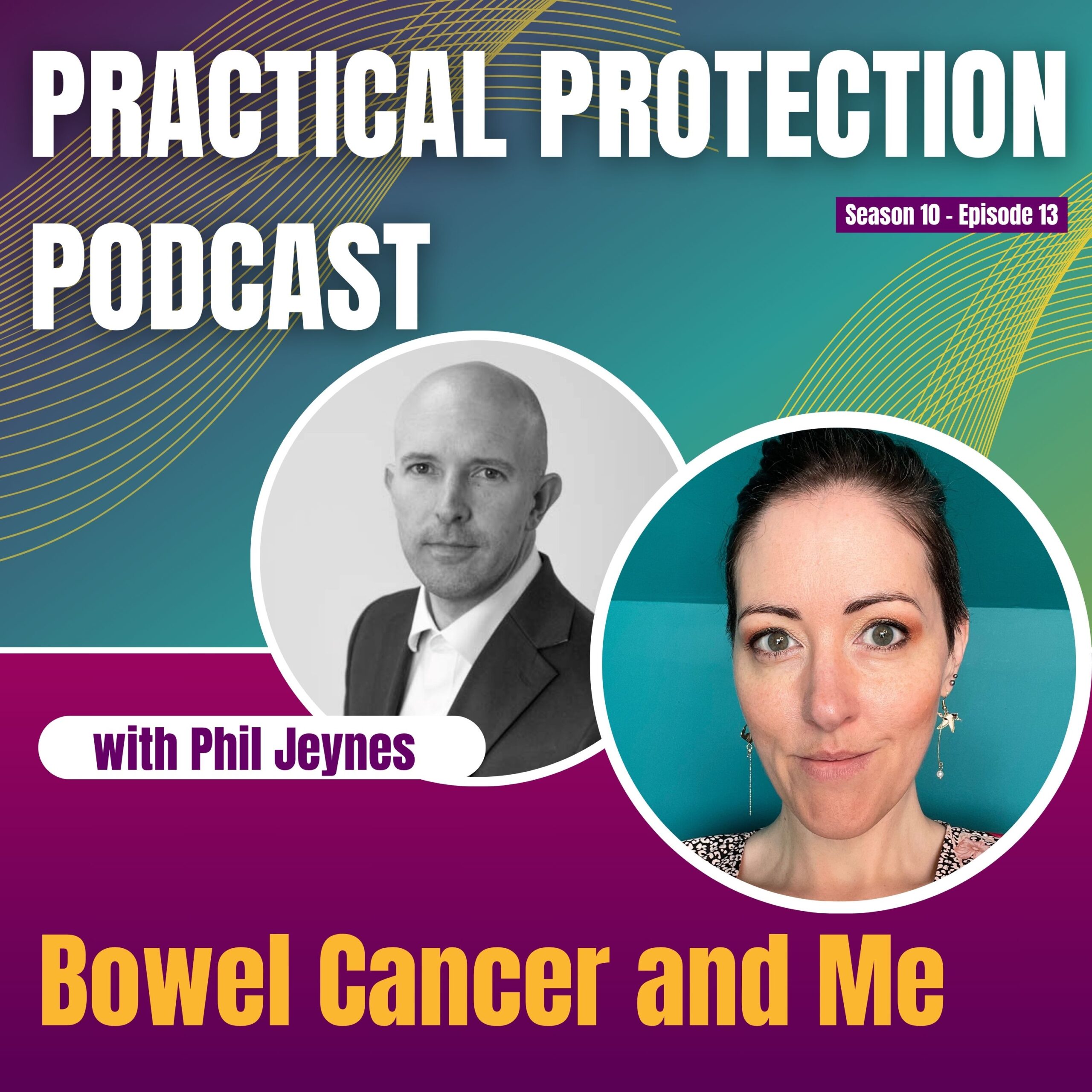Hi everyone, Alan is joining me again to give us all insights into arranging protection insurance for someone living with cystic fibrosis. Cystic fibrosis is a condition that can be difficult to insure for life insurance. Historically, the life expectancy of a person living with cystic fibrosis has been much lower than average, which means that insurers see it as quite a high risk for a claim. The good news is that modern medicine has now significantly improved the outlook and half of people living with CF are now likely to live to at least the age of 56.
Unfortunately standard routes for personal critical illness cover and income protection are not currently available. The absolutely best way to be covered by these insurances is through group cover through an employer, but even then there can still be some technicalities that can cause an issue at point of claim.
The key takeaways:
- Approximately 11,000 are affected by cystic fibrosis in the UK and 1 in 25 people carry the gene without knowing it
- The median age for people living with cystic fibrosis that died in 2022, was the age of 33.
- Three case studies of arranging life insurance for people living with cystic fibrosis.
Next time I am going to be talking about the FCA’s recent protection insurance paper and my interpretation of what this means for our industry going forward.
Remember, if you are listening to this as part of your work, you can claim a CPD certificate on our website, thanks to our sponsors NextGen Planners.
Kathryn Knowles 00:11
Hi everybody. We are back with season 11, episode four, and Alan is here with me again, and we’re going to be giving you some insights into arranging protection insurance for people living with cystic fibrosis. This is the practical protection podcast.
Kathryn Knowles 00:40
So Alan, how are you doing? We’ve just got back of our holiday. Is everything feeling nice and back in the swing of things?
Alan 00:47
Yeah, absolutely, just thrown back into everything like a steam train. It’s it’s good, it’s good. Wouldn’t have it any other way. But it’s been, been a lovely break, and just busy, busy, busy. Now
Kathryn Knowles 00:57
Absolutely, and I have to say, Alan is sounding far chirpier than I think everyone is giving real credit for how chirp he’s sounding, because I did about a month ago. It was now mostly, yeah, just a little over a month, a month and a day actually encouraged us to have another dog. And so we have a little puppy who is currently a menace and is sat on my knee so I can try and distract him away from our older dog fudge so that we can do this and hopefully not have any squabbles in the background. But just bear with us if you suddenly do hear a puppy app or anything like that. So cystic fibrosis. It is an inherited condition that affects breathing and digestion, which can obviously then have an impact elsewhere in the body as well. It’s generally diagnosed in the UK through the newborn heel prick test, and it affects around 11,000 people in the UK.
And what I found really interesting as well, when I was doing the research and statistics for this is the fact that one in 25 people carries the gene without knowing it. Now, one of the reasons that’s quite interesting is actually when I was pregnant with our third child, and we found out that Alan’s family are actually carriers for the gene, and it was, it was through some testing that a close family member needed to have. And sort of like all the connection came there, and it was, it was obviously quite a shock to find that out, but obviously really important to know, because it’s something for our children especially. Obviously we’re not having any more children, and we’ve had three children, none of them have cystic fibrosis, so very unlikely that I have it and carry the gene, but it is something that our children will need to be mindful of if they will have children themselves. And so the gene that’s involved with cystic fibrosis, it’s all about how salt and water move in and out of the cells in the body.
So obviously, we all have mucus and different things like that in the body. And what happens with cystic fibrosis is that the mucus becomes thick and sticky because of this difficulty with the salt and the water moving, and which then presents difficulties in terms of the breathing, so the ability to clear the lungs and as well the digestive system. So the positive news is, though, is that there’s been a lot of developments in terms of, I say, positive news, because there has been a lot of in the past, quite negative news on cystic fibrosis and in terms of life expectancy. So I will just go over that a little bit, but I don’t want to dwell on that. But the good news is, is that with newer, more modern treatments, around half of the people living with cystic fibrosis will live to at least the age of 56 which is really, really good. But in terms of that negativity, and I’m going to include the negativity, because it will then explain, I think some of the insurers reluctance sometimes to offer insurance, is that the median age of someone passing away with cystic fibrosis in 2022 was the age of 33 now, what I would say is that that is sort of like the most recent statistic that I’ve been able to get.
But in 2022 will mid the coronavirus pandemic, which was all about breathing and difficulty. So while statistics there, I don’t know, maybe also coronavirus had some kind of influence on that, but it is historically that cystic fibrosis does affect a person’s lifespan, so does potentially have implications for insurance. So, Alan, can you start off please tell us about, obviously, cystic fibrosis and the kind of things that insurers are looking out for?
Alan 04:50
Yep, no, absolutely, absolutely. So I probably can’t really add much on about what cystic fibrosis actually is to what you’ve already mentioned. So I think if you know, if I probably jump right on to the type of things that insurance would want to know, and this obviously works hand in hand with kind of what the effects of cystic fibrosis are as well. So obviously, as Kathryn mentioned, it is to do with the mucus. It’s to do with the breathing. I mean, we often, you know, we think of cystic fibrosis and think of how it affects people’s breathing, but it does affect elsewhere in the body. You know, can have impacts on the liver, it can have impacts on the pancreas and things like that.
So some of that’s going to affect the type of things that you need to ask the client. Now, this might sound like a really, really daft one to put in as the first question, and you probably will always ask a client this anyway, but smoker status is a huge one. And you might say, well, Surely nobody would ever smoke with cystic fibrosis. I have had a client who was a smoker, a light smoker, but, you know, they were a social smoker, and they had cystic fibrosis. And obviously that is not a great combination for an insurance company. So absolutely still ask that question, and just remember that even vaping is classed by an insurance company as smoking, so even if nicotine free, yeah, I mean, there are one or two companies who might consider a nicotine free as a non smoke career, yeah, but actually, those couple of companies wouldn’t accept somebody with cystic fibrosis anyway, so, you know, even a nicotine free vape, you’re absolutely right, is still gonna, gonna, gonna have the same impact on that, and kind of serious things that you know would probably come up in conversation, but something like a lung transplant, for example.
You know, lung transplant can be done where cystic fibrosis has got really bad, and there’s been scarring and damage and things like that. It’s not as common to see. But obviously that’s going to be something that’s really big and will probably hugely impact the terms and the availability of insurance. But obviously they’re probably your bigger things. Now, what you really want to be looking at now you’re always going to ask somebody, when were you diagnosed? The majority of people are diagnosed. You almost you say, either through a heel prick test or sometimes, what happens if they’ve not had that is that they’ll actually be diagnosed? Well, the first thing they’ll do is they’ll they’ll measure some of the sweat, and they’ll check for chlorine levels and things like that. And then that will lead for maybe genetic testing and other tests that they can do. But, you know, we’d find out when it’s diagnosed. Not hugely relevant, because the majority are going to be diagnosed with diagnosed when they’re a child. What we’re really looking for is the impact that this is having on somebody at the moment, and what impact it’s probably had over the last couple of years. So for example, hospitalization, how many times are they needing to go in and have, you know, sort of support or treatment in a hospital based environment. Are they having chest infections? Are they having other types of infections, pneumonia, things like that.
Obviously, if these are regular things that are happening, that’s not such a positive for an insurer, but you will get lots of people with cystic fibrosis who actually are very stable, very well controlled, and they just manage it at home. They do their physio at home. They’re different physio, it’s not physical physio, it’s obviously breathing physio. They’ll take the medication, and they will live a near normal, normal life, but things to look out for infections, you know, obviously mentioned that things to do with the lungs that could even include things like pneumothorax, which is a collapsed lung, Gastro issues. So you know stuff to do with the stomach, you know you might find if they’ve got another condition that’s sort of, I guess, going to coincide and cause gastro issues like ulcerative colitis or something. Again, it’s probably going to complicate it. Liver issues, and I mentioned the pancreas before you can get cystic fibrosis related diabetes.
So again, it’s something just to be aware of. And to be fair, most of the people that I’ve spoken to with cystic fibrosis, they understand they know their condition. So if you start asking, you know, what complications have you had in the last couple of years, if any, they will probably be able to articulate and tell you these very, very well, but it’s all really important for the insurers, medication and treatment. So it’s actually really, it’s kind of interesting. Is this one? Because if you go back now, pre pandemic, there was very little availability for people with cystic fibrosis. We can maybe do a little bit in the pandemic. Absolutely not. It was completely written off. Because obviously it was a, yeah, it was a huge, huge risk, yeah, but it has started coming back now. But what’s my point? I was just medication and treatment. Thank you very much. I went off on a tangent there. So what’s what we kind of seen in the world of cystic fibrosis now? Is this wonder drug that’s come out, used to find people took all sorts of different medications and the different ones, but, but actually this wonder drug, now called Kathryn, very, very expensive.
I’ve heard reports that it’s anywhere up to 100,000 pounds per patient per year, so very expensive and but it’s effective on about 90% of all cystic fibrosis people. Which, which is huge. And when you speak to someone who’s got cystic fibrosis and you say the wonder drug, or you say Kathryn, usually they will say, wow, you know, it’s been amazing. It’s transformed. You know, I’ve not had any hospitalization. I’ve not had this, I’ve not had that. And it, I think my understanding, is a combination of three different types of medication, which I’m not going to pronounce on here, but the people were on in different forms in the past, so it really does seem to be working wonders for people now, what this has then led to is better control of people with cystic fibrosis, and actually, a couple of insurers now on the mainstream market been willing to consider life insurance for some very stable customers. Obviously, I’m sure we’ll get impacts of what that what that looks like. But I think you know, if I were to summarize this, what you’re really looking for is treatment. Obviously, your basics, you know, you kind of more invasive, big things that might happen. But stability? Are they? Are they stable? Are they in and out of hospital? Are they having lots and lots and lots of infections? Are they working? Are they you know that if you’ve a family and things like that, basically, how stable are they, and have they been for a period of time? And that will hugely help you when you’re looking into to insurance,
Kathryn Knowles 11:12
absolutely. And I think because of the fact that we know that the the options are so limited, especially with mainstream insurers, if you’ve got all that information is kind of like a high level, then you’ll be able to do your research and quickly go right well, these are the insurers that are going to be possible. These are the ones that aren’t. But then you would need some to get, like, really accurate quotations, and you would need probably some really specific so as an example, in current lung function tests, that would be really useful to know just how well the lungs are operating. And when I was doing the I always, whenever we do the podcast, obviously I provide case studies at the end, so I go back and look through clients that we’ve supported, and something that did pop up, and I saw like in terms of responses from underwriters when I was looking at these things, is sometimes weight fluctuations.
So again, talk about the digestive system, the ability to absorb you can find that not always, but people with cystic fibrosis can at times when, sort of like you go through those hormonal changes as a teenager, you don’t necessarily grow and develop at the same amount of somebody who doesn’t have cystic fibrosis, so that can sometimes have an impact as well on the weight fluctuation side of things. But I think everything you’ve said is absolutely, you know, the really key thing, especially is, you know, those recurrent kind of like pneumonias or flus, things like that. I mean, I think colds are probably not too intense. It’s unless they need is, like, antibiotics or steroids every single time, but again, something like that. You know, have you needed to have oral steroids?
You know, it’s, it’s all just building a picture and, and I think what’s really important to us at puberty cystic fibrosis, they really understand their condition, and they really know how to manage it. So, you know they’re not going to be, you know, putting themselves in situations you know specifically where they’re going to be at higher risk of developing your money or having colds and flus and things like that. So so it’s probably not likely that’s going to happen lots, but it is just to be more mindful of it, because that then indicates to the insurers, you know, just how much that person is obviously being very, very mindful of their health. And antibiotics
Alan 13:25
was a really interesting one, actually, because I’ve got to mention that. So if you get somebody who is on antibiotics as a constant, as a, you know, as a regular medication, rather than just targeted, that can obviously also lead to a bit of risk, because the more you take antibiotics, the more you become immune to actually, how well they work, you become resistant to them. So again, it’s not to say it would absolutely throw it out, but long term use of antibiotics or steroids will obviously add another level of complication. Yeah,
Kathryn Knowles 13:56
and obviously that could be a big difference in terms of the pricing, because you know, if you’re going from, you know, a plus 50 to a plus 200 because of that, then that’s a very, very different indication for your clients. And I mean, when it comes to life insurance, we know the best premiums are generally very, very low anyway, but you know, it’s still quite a jump, and that can obviously be quite a surprise for people. So just try and get as much as you can. So, I mean, I suppose the really key thing is that the main concern from the insurers, and this is just from our sort of, like, understanding of the underwriting side of things, and like, the feedback that we get from underwriters, is that there is that concern that someone with cystic fibrosis will typically not have as long a lifespan as others, yeah.
Alan 14:42
And, I mean, I can’t comment too much, I guess, on how that is looking now, as we know, insurance world tends to work a little bit behind, yes, the medical world. So maybe with this new medication, you know, it might show that people are hopefully going to be living longer and longer. But yeah, obviously they’ve got to go on the statistics, and if. That show that actually there is a reduction to life expectancy. Well, then, on one hand, it’s great that we have some insurers who are willing to offer, offer cut that absolutely it does have a term cap applied.
Kathryn Knowles 15:11
Yes, so, and obviously we will go into that regarding the underwriting. So potential complications, you have mentioned, cystic fibrosis, related diabetes, any other kinds of considerations? I mean, one of them is, like I mentioned before, in terms of for ourselves and our children, that there is the fertility considerations. Obviously, that doesn’t come into any kind of consideration for insurers, if somebody is a carrier or if somebody does have cystic fibrosis, you know, the fertility side isn’t going to be questioned, but it might just be being, obviously very sensitive and mindful. If you ask about, do you have any children, or being mindful that there could actually be some levels of anxiety or stress associated with that, because obviously it is an incredibly emotive thing, if you if you’re wanting children, and maybe you’re not able to or, you know, there’s these genetic things that you need to consider, but there are, there are other things as well out there, I think, in terms of some complications.
Alan 16:14
Yeah. I mean, I think, I think, to be fair, I think we probably covered the majority of things, which is, obviously the diabetes is the main one, lung damage, lung scarring, things like that. Obviously, I know I mentioned about the lung transplant, you potentially have things like osteoporosis as well. You know they they can be other complications. But the main ones that we tend to see are things like infections, cystic fibrosis, diabetes and obviously scarring damage to the lungs, which is quite often caused by the long term effects of cystic fibrosis or not being properly medicated for it as
Kathryn Knowles 16:49
well. Absolutely. So what do you think we’re going to see? I mean, I’ve got some case studies, but what’s it given us some general breakdowns on and what are we expecting for life insurance?
Alan 16:58
Yeah. So life insurance, first of all, I am pleased to say is available for some people with cystic fibrosis. So this is really I was
Kathryn Knowles 17:06
gonna say, let’s say full. I was gonna say full life insurance, because you can get life insurance. It’s really tricky, isn’t it, because there are some specialist ones where you could absolutely have it, but it would have an exclusion, but they have exclusions. So it’s so important to be mindful of those as well. If you know, especially if you’re anybody who isn’t an advisor listening, if you just remember a public listening or charity, you know, there are insurances where you could set them up within 20 minutes, but there will be exclusions regarding pre existing conditions for at least a set period of time. Yeah. And so just be very, very mindful of that. But so when we’re talking about the life insurance you were just mentioning there, Alan, we’re talking mainstream insurers where you’re getting a, say, full life insurance without an exclusion relating to cystic fibrosis, absolutely,
Alan 17:48
absolutely so to my knowledge, today, there are two mainstream insurers who can consider, and obviously I won’t name them on here, but there are two mainstream insurers who can consider, currently people living with cystic fibrosis, they will usually apply a term cap to the policy. Now, by that, I mean a maximum time that they can be insured for before the policy will stop. So the maximum currently is 50 that we’ve been able to see, we’ve not seen anything that’s gone beyond 50. Sometimes it is capped at 40 as well. That’s but, but we’ve seen that increase a little bit from 40 up to 50, which obviously, is brilliant. We saw this similar with HIV in the past. You know, yeah, it started. It was a bit more restrictive. It was five years, it was 10 years, it was age 50. And now we can do whole of life cover for people living with HIV.
So, you know, hopefully, is this, you know, treatment, you know, improves we will start, we will see a similar sort of path to what we did with with HIV underwriting. But yeah, as Kathryn said, no exclusions, you will be looking at a loading. So there will always be some form of a price increase in terms of a percentage that could be anywhere between double the premiums and quadruple, I guess, at the highest level. So 100 to maybe a 300% loading. There is also a specialist underwriter, insurer out there as well. So there is a third out there who will accept the majority of cases with cystic fibrosis. They are probably more likely your ones to go to if you’ve got things like cystic fibrosis, diabetes, significant scarring, much more complicated cases. But they will limit the policy to 10 years currently, because that is the maximum that they offer, just just in general.
So the good news is there are options for the for the majority of people now, not for everybody, but there will be for most Do you want me to mention critical illness? Yeah, that’s what people are here for. So critical illness cover, I’m afraid to say, to my knowledge, is not available at the moment. Obviously, people could have things like, you know, when them saying all this, you know, if people have got employee benefits through work that have critical illness and life insurance and things like that, yeah, of course. They’re going to have some cover through through that. But I’m talking about individual policies here. Yes, we talk
Kathryn Knowles 20:04
about personal cover so but just to be clear, I think we just need to be very, very mindful on those group. Ones is that, you know, existing conditions, the existing conditions on critical group, critical illness through an employer, are excluded. But also as well, there can sometimes, depending upon how the employer has set up the group cover. There can sometimes there’s then people, everybody who’s meant to be covered by the policy is meant to be covered, in a sense, without any kind of medical underwriting, so they are eligible for the policy, but with a pre existing condition exclusion. But there are sometimes the way that they are set up, they sometimes do actually have medical underwriting, so people aren’t necessarily eligible. So it’s just really important know exactly that, check the T’s and C’s and make sure that you do know what you are not covered for. But essentially, in terms of critical illness side of things, the absolute best option would be through an employer scheme. At the moment, there is the cancer only policy that we can potentially look at. But, you know, and then, obviously, that’s quite interesting for a lot of people,
Alan 21:12
having cancer limited benefit. But, you know, it’s something, it’s an alternative to critical illness. But you know, kind of back to my point, critical illness cover individual market, individual policy, sadly, is not available currently, to my knowledge, for somebody living with cystic fibrosis. Obviously, some of the alternatives we’ve just kind of alluded to might might be suitable, though, and income protection is interesting. So income protection, again, to my knowledge, probably nobody is underwriting that. Whether
Kathryn Knowles 21:39
you full income full personal income protection.
Alan 21:43
Ignore the fact policies, things like that, but I’ll explain and justify what I’m going to say in a second with this. So for kind of full income protection, the chances are it’s not available now, whether we might soon be able to talk to some of the friendly societies about this, like what we did with HIV, originally, very possibly, you know, we might be able to come up with something, something with them. So let’s, let’s not say this is an absolute no for, you know, for the moment. But interestingly, there are some options for income protection on an individual basis for people living with cystic fibrosis. So there are non underwritten policies called accident and sickness policies, where they basically can be applied for with a pre existing health condition exclusion. They’re available for the majority of people because there’s no underwriting. They just apply this exclusion.
But there are also a couple of, I call them semi underwritten policies, and these are proper income protection policies, again, they’re not underwritten as such. They have some catch all questions, but usually cystic fibrosis is not something that comes up in those questions. So what they will do is they will usually offer income protection for somebody living with this condition, but they will simply exclude it or anything linked to it. Now, obviously that could be quite extensive, because we know there’s lots of things that could be linked to it, but at the same point to try and get cover for those unforeseen events, accidents, serious illnesses that are not linked to it, I think there is merit in considering that these policies usually have a limited claim. So there is usually anywhere up to two to five years per claim as a maximum claim period. But let’s, I think it’s important just to say that there, there are options, yes for income protection, so life insurance, yes, there’s options critical illness, not really income protection. Yes there are, but they’re just a little bit limited
Kathryn Knowles 23:38
Absolutely. And I think it’s fair to say as well, if we talk about the group side of things as well. So if you’ve got enhanced sick pay free work through a group income protection policy, is that a lot of the time with those policies there’s no exclusions for claims relating to pre existing conditions. That’s not always the case. It usually is. It’s not always the case. So again, speak to your HR representative. So in terms of, obviously, as well being an advisor, something that can be really worthwhile, or we haven’t mentioned, as well, oxygen tanks, that’s another one as well. In terms of, you know, does the person require an oxygen tank? Is it something that they need all the time? Is it just certain parts of the day? So that would be another thing to just double check. Nebulizement.
Alan 24:19
Nebulizers are fine. They’re okay. They’re kind of expected, in a way, and actually part of the physio and everything, but yeah, oxygen tank shows a
Kathryn Knowles 24:25
big difference. Yeah. And so something just be mindful of as an advisor when you speak with people, this isn’t the case for everybody with cystic fibrosis, but you might just want to be conscious of the pacing of the conversation. So they might need potentially a little bit more time, because they’re going to be, obviously, potentially breathing and expressing their thoughts, and just need that little bit of extra consideration. So, you know, don’t like rush them at all, and just make sure that you know you do give them exactly what they need. Oh, and one of the dogs going, apologies for that. So. So we’re just going into the next sort of like Final base. Oh, and another thing just for you to know is that if you are the carrier of the cystic fibrosis gene, you do not need to declare this in the insurance applications. Insurers can ask about some genetic testing, but cystic fibrosis is not one of them. So in terms of case studies, I’ve got three for you. Two. I’m going to go into detail with one of them is just like a little bit of an extra. So the first one is that we had somebody with cystic fibrosis.
They were in their early 30s, non smoker. They’d been diagnosed at birth. They’d also had fibromyalgia for the past six years, and some mental health as well. And so we were able to do them 70,000 level life insurance over 25 years at 17 pounds and 50 pence per month for the second person, they were the early 20s and a non smoker and again diagnosed with cystic fibrosis at birth, but they’ve had no significant symptoms in the last five years. So we were able to do decreasing life insurance of 176,000 over 25 years for 26 pounds and 50 pence. And this was a really interesting one, because what happened with this one is that we we went to one insurer who had said that they could go to a maximum age 40 due to the condition, which did give a shortfall in terms of the mortgage timeframe. But the pricing and some extra features were really, really good, and the person was planning on paying off their mortgage earlier and things like that. But after the underwriting, they then changed it to a maximum 10 years. So we just switched everything to a different insurer. But with that as well, throughout the whole process, like I always suggest is, I’d said, get a copy of your GP report, get a copy of XYZ, so that we could really quickly switch to a different insurer and get that person covered. And then just give an example of ages.
So I’ve done someone in the 20s, someone 30, so now someone in the early 40s, and again, non smokers cystic fibrosis from birth, and they had some gastro reflux, so involving the digestive system, had some osteopenia. And with that, one was 85,000 over 10 years, was 112 pounds per month. So you can see that the pricing is starting to go much higher once we’re getting towards our 40s and higher, just because of that data and in terms of the lifespan and what insurers currently have as data, and what’s really exciting though this new medication that’s out is that it might take a little while, but the insurers are getting that new data all the Time to show exactly what that means long term for people. So we should fingers crossed start getting much better options in the future. I mean, I’m not going to say that it’s going to be quick. I would say maybe, I would guess maybe in five years or so, we’d have the really, much, much better options. But let’s have our fingers crossed. So thank you for listening, everybody. Thank you for coming. Alan.
Alan 28:03
Very welcome. Thanks for having me. I had to run out a second ago and get the dog to stop barking, so I’m stuck with him in my arms. This has been an interesting podcast. It
Kathryn Knowles 28:10
really, really has. Next time, I’m going to be chatting through the recent protection paper from the FCA, I’ll be going through my interpretations of what the regulator has in store for us in the future. If you’ve listened to this as part of your work, please feel free to get a CPD certificate on the website, thanks to our sponsors, the next gen planners, and you can access all the episodes and the CPD certificate At practical height and protection.co.uk.
Speaker 1 28:34
Thank you, everybody. Bye. You you.
Transcript Disclaimer:
Episodes of the Practical Protection Podcast include a transcript of the episode’s audio. The text is the output of AI based transcribing from an audio recording. Although the transcription is largely accurate, in some cases it is incomplete or inaccurate due to inaudible passages or transcription errors and should not be treated as an authoritative record.
We often discuss health and medical conditions in relation to protection insurance and underwriting, always consult with a healthcare professional if you are concerned about any medical conditions and symptoms we have covered in any episode.

